Have you ever found yourself in a tight spot, realizing you've missed a deadline and needing to make amends? We all know that life can throw unexpected challenges our way, and it's important to address these missteps gracefully. A heartfelt apology can go a long way in mending relationships and rebuilding trust, whether it's with a colleague, client, or supervisor. If you want to learn how to craft the perfect apology letter that resonates, keep reading for some effective tips and a template!
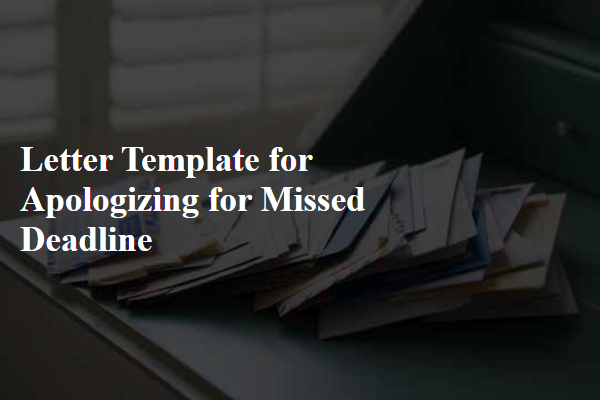
Acknowledgment of missed deadline
Apologizing for a missed deadline can be crucial in maintaining professionalism and trust. Acknowledgment of missed deadlines involves taking responsibility, reflecting the impact of the delay on projects or stakeholders, and expressing sincerity, which can help to restore confidence. For instance, in collaborative environments like corporate settings or academic institutions, recognizing how the delay affects team dynamics and project timelines is essential. A well-articulated apology not only conveys regret but also outlines steps to prevent future occurrences, thus reinforcing commitment to accountability and improvement.
Sincere apology and responsibility acceptance
An apology for a missed deadline involves acknowledging the impact on projects and teams. The missed deadline, such as submitting a report or project by a specific date (e.g., October 15, 2023), can lead to delays in subsequent tasks or disruptions in workflow. Recognizing the importance of timelines in professional settings demonstrates accountability. Offering a clear reason for the delay, such as unforeseen circumstances (e.g., illness or unexpected workload), shows transparency. Proposing a new completion date emphasizes commitment to rectifying the situation, along with assurance of improved time management to prevent future occurrences.
Explanation of the reason for the delay
Missed deadlines can occur due to unforeseen circumstances such as unexpected personal issues or sudden job responsibilities. In cases like a medical emergency that necessitates immediate attention, it can significantly disrupt schedules. External factors like supply chain disruptions affecting project timelines can also lead to delays. Acknowledging these challenges is crucial in professional communication, emphasizing accountability. Clear communication about the situation, along with proactive plans for catching up or rescheduling, can help maintain professional relationships despite setbacks.
Assurance of steps to prevent future delays
Missed deadlines can have significant consequences for project timelines and team dynamics. Apologizing effectively involves acknowledging the oversight, explaining the circumstances without making excuses, and assuring all stakeholders that concrete measures will be implemented to prevent future delays. For instance, implementing a project management tool, such as Trello or Asana, can enhance task tracking. Scheduling regular check-ins can also ensure that progress is monitored consistently. Additionally, setting clearer expectations and deadlines, along with milestones, can help maintain accountability. By taking these proactive steps, commitment to improved time management and adherence to deadlines will be reinforced, ultimately fostering a more reliable and productive workflow.
Proposal of a new deadline or resolution план
A missed deadline can significantly impact project timelines and stakeholder trust. Acknowledging the oversight is crucial in maintaining professionalism and accountability. Proposing a new deadline can demonstrate commitment to resolving the issue. For instance, if the initial deadline was set for October 15, 2023, suggesting a realistic new deadline, such as October 30, 2023, allows for ample time to rectify any shortcomings. Providing a resolution plan detailing specific steps to ensure timely completion can enhance confidence in future performance. Outlining accountability measures, such as regular progress updates, can reassure stakeholders of renewed dedication to quality and efficiency.
Letter Template For Apologizing For Missed Deadline Samples
Letter template of understanding for requests regarding late submissions.
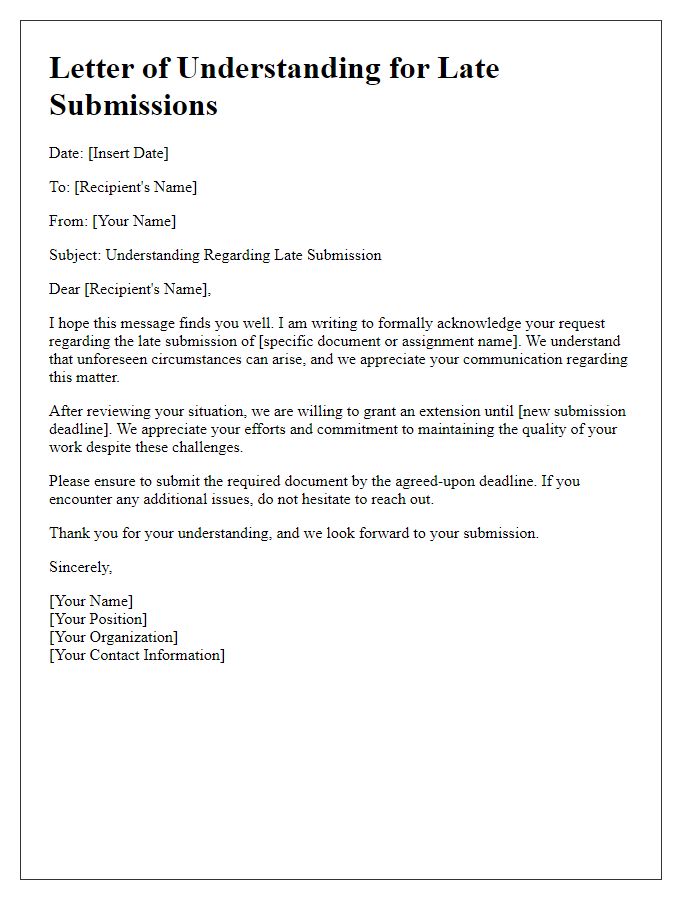

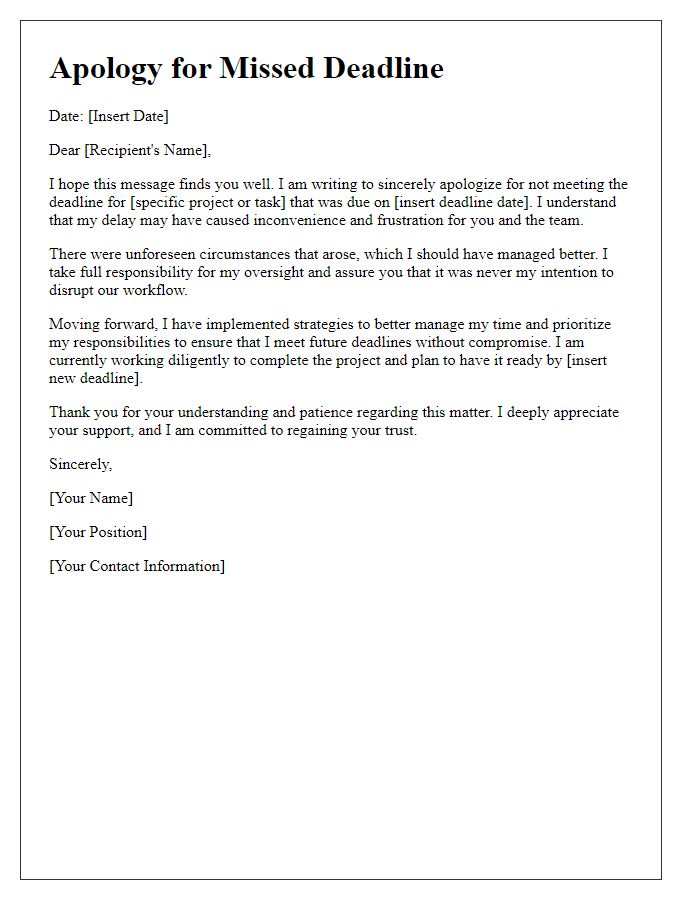
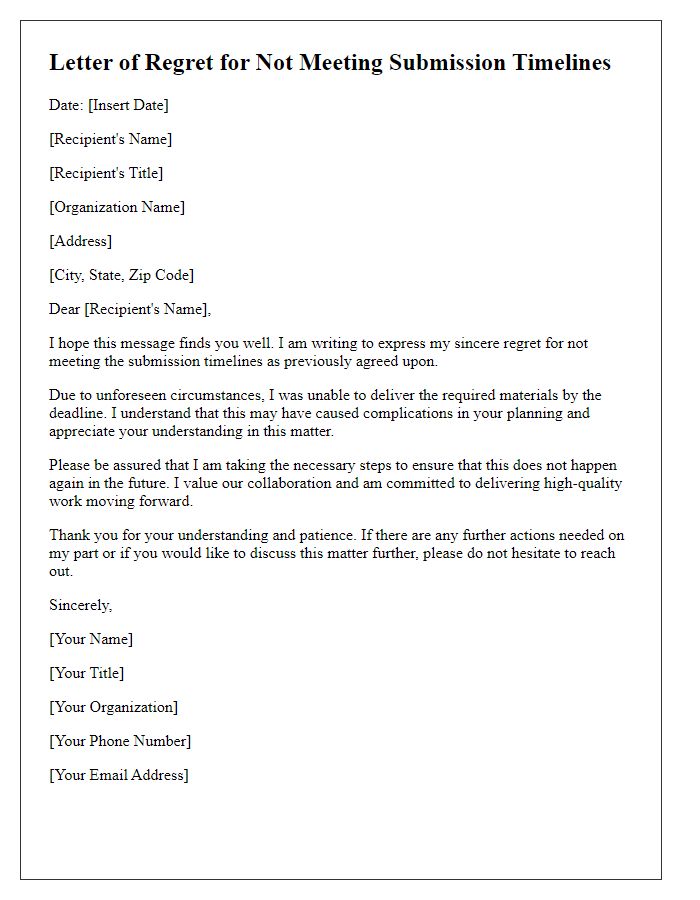
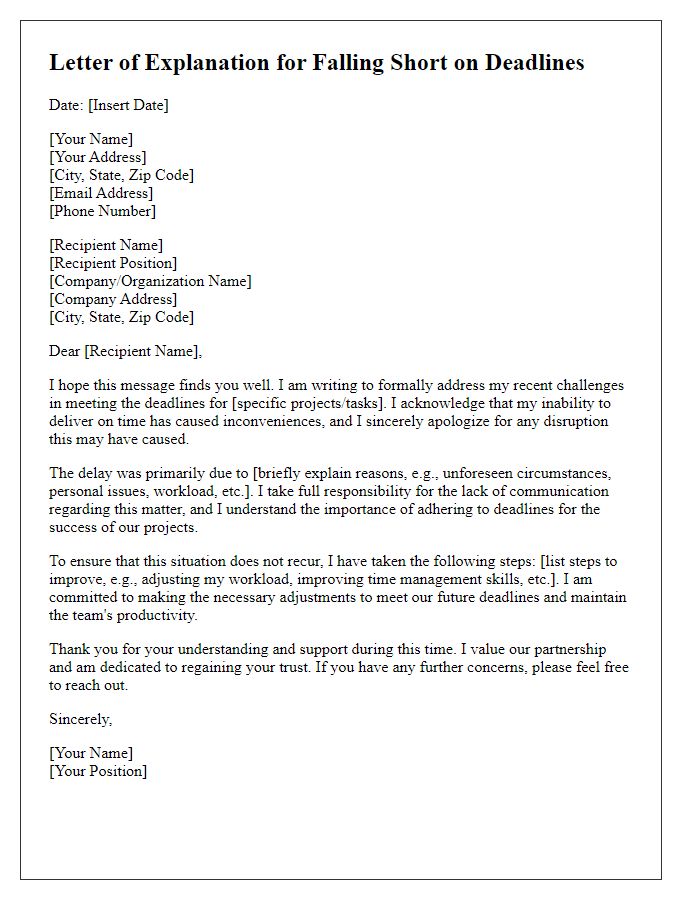
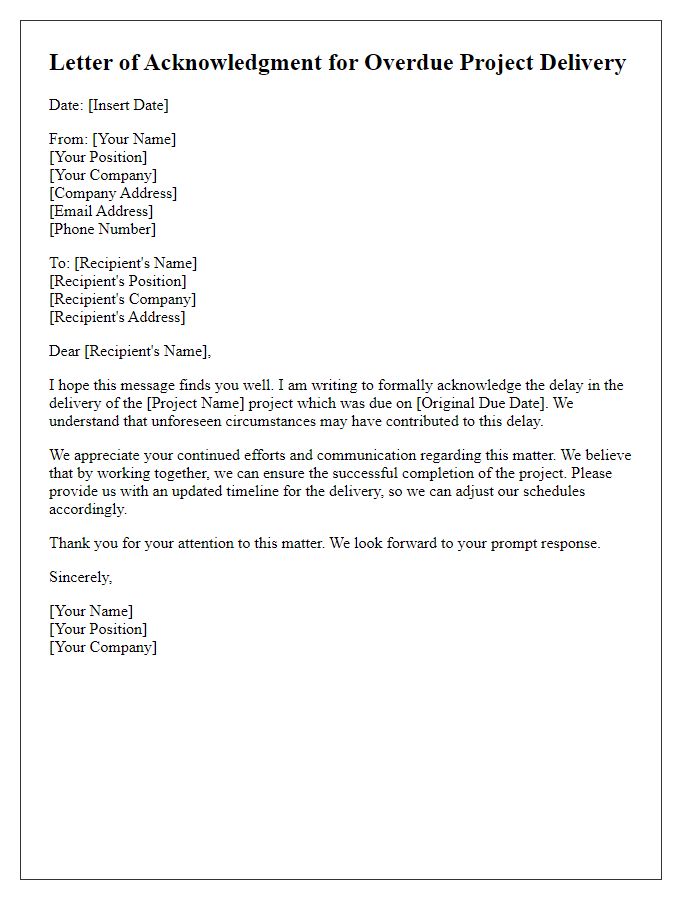
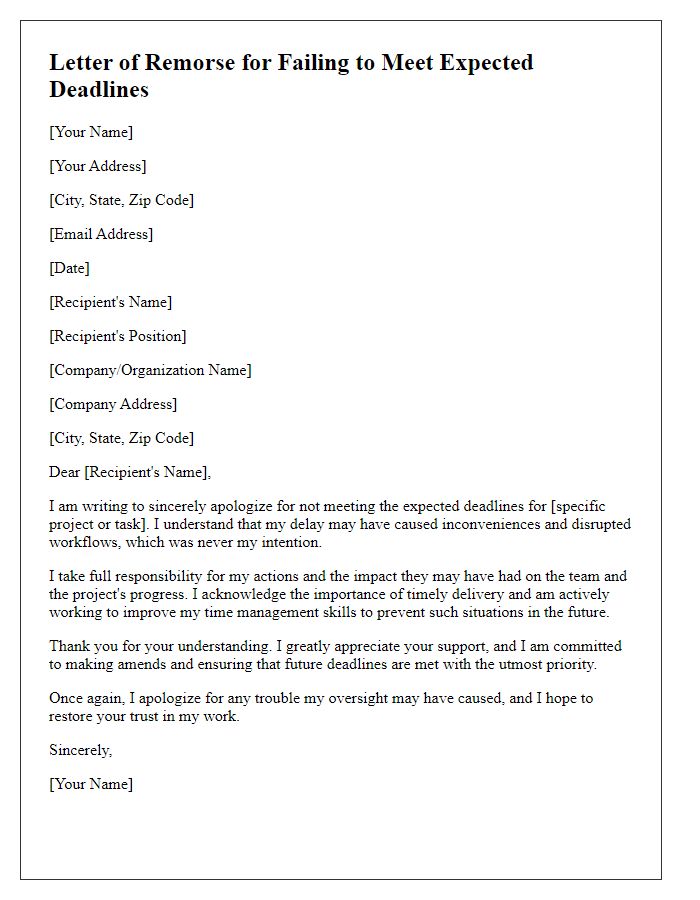
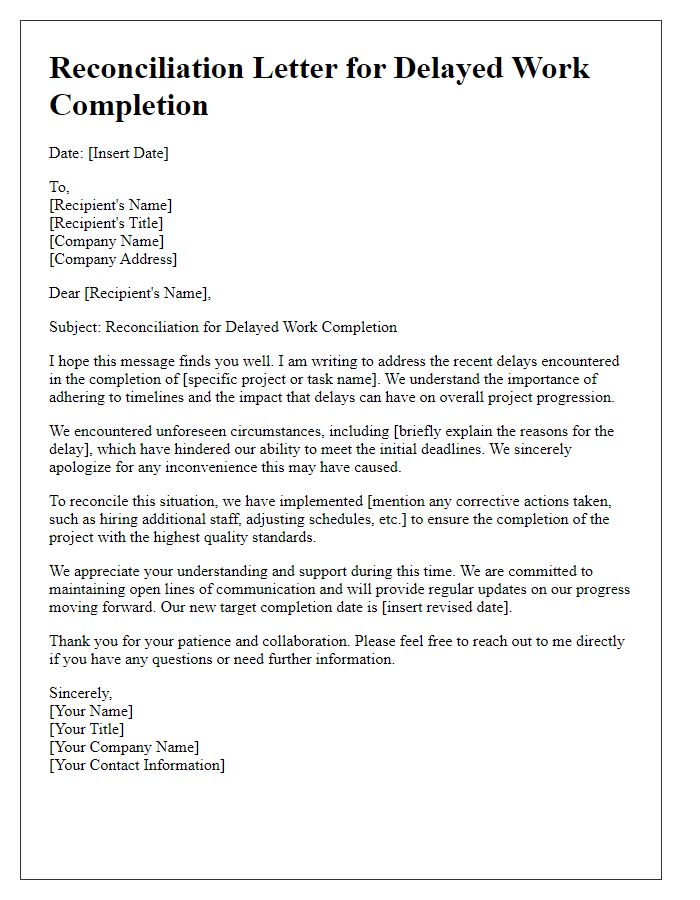
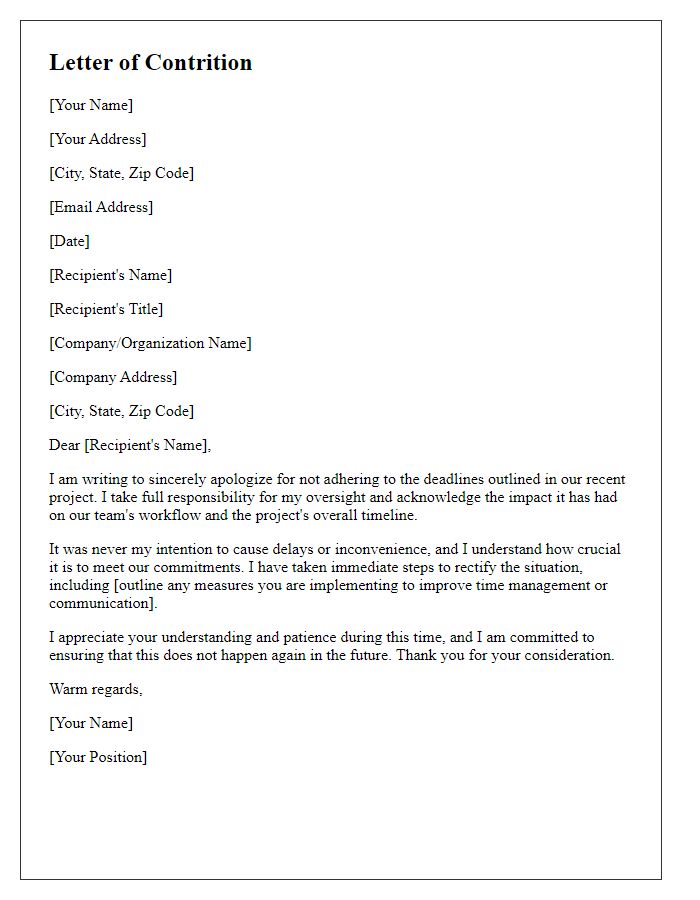
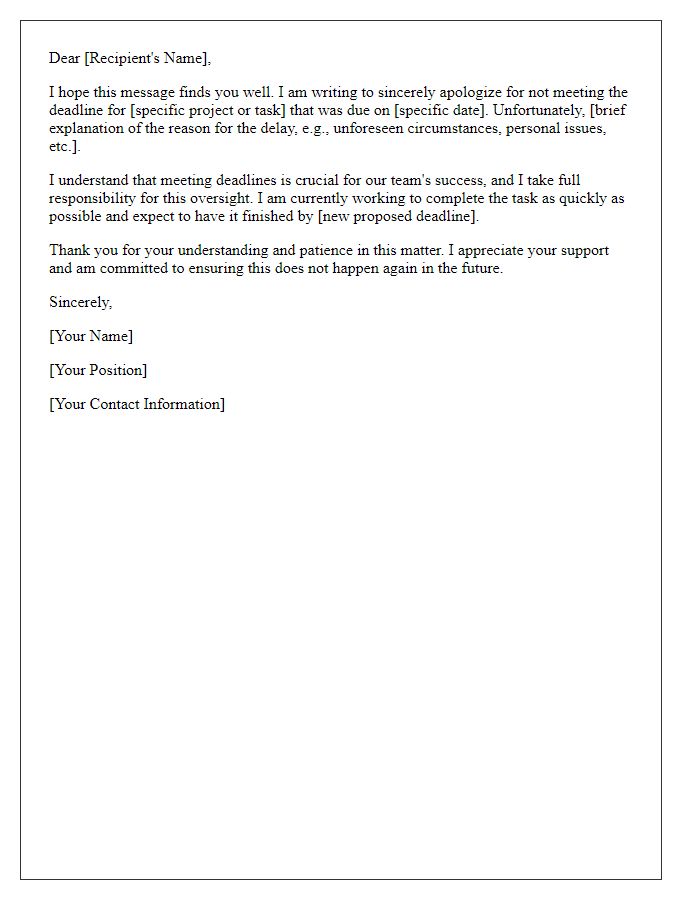
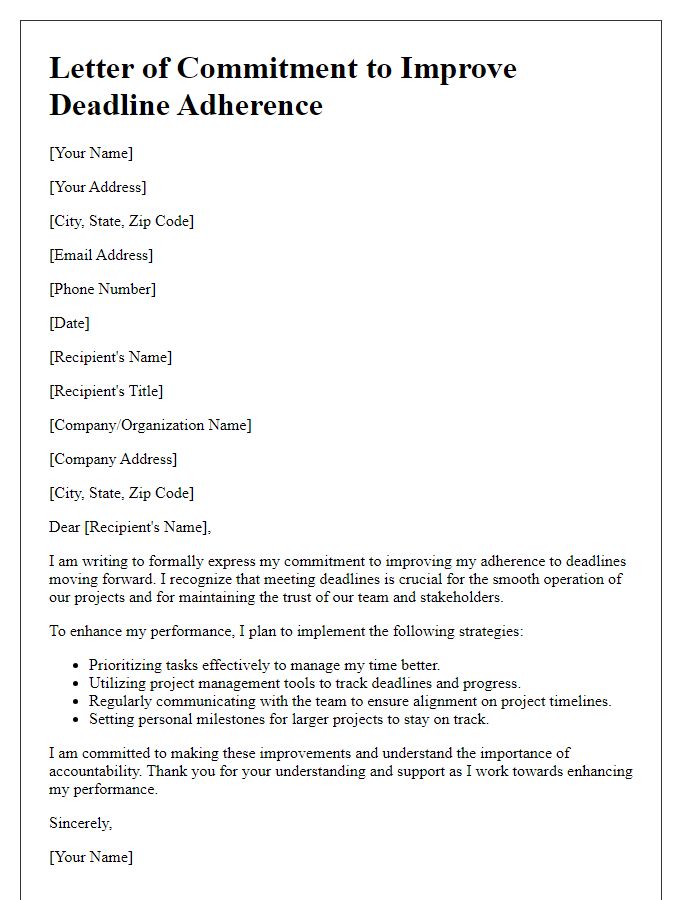


Comments